|
Regional History History of Timbering County Histories Oral Histories Calhoun County Gulf County Jackson County Larry Ford Richard Hinson Laurence Pender Sarah Speights Wakulla County |
Voices from Jackson County:
Larry Ford
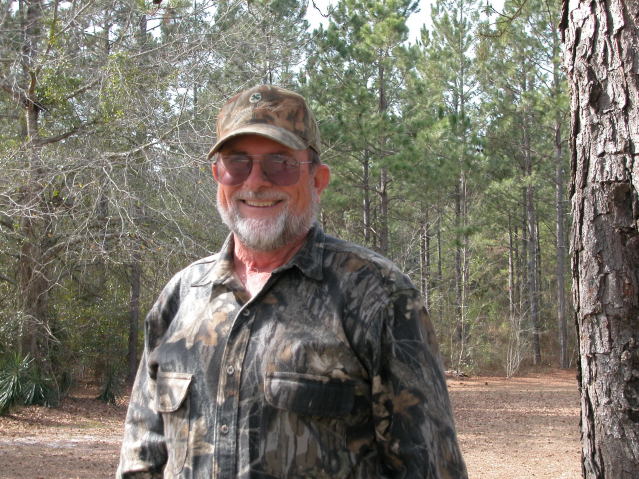
Larry Ford was born August 9, 1945, in Marianna, Florida, with farming in his blood. He grew up on a small farm north of Malone. A state officer in the Future Farmers of America, he left Jackson County only long enough to attend and graduate from the University of Florida.
Today Mr. Ford is one of the largest and most successful farmers in Jackson County. He grows cotton, corn, and peanuts, and raises cattle on three farms totaling 3000 acres. He is President of Tri-State Peanuts and CEO of Malone Peanuts.
Listen to Mr. Ford's early desires to be a farmer: Real Network | Windows Media Player
Click here to read the text of the audio early farming desires.
In the 1950s, small family farms were the norm in Jackson County. Farmers grew cotton, corn, and peanuts without the benefit of irrigation. “Everything was dependent on Mother Nature completely and everyone bottom plowed every bit of land they had,” recalled Mr. Ford. Peanuts were always the money crop, and corn was grown for animal feed. Hogs were often turned lose and allowed to glean the fields. By the early 1960s very little cotton was grown in the county.
Today is cotton is enjoying resurgence in Jackson County and elsewhere. In the Fall cotton grows once again in the fields along the highways in Jackson County. The bales are collected and taken to the Clover Leaf Cotton Gin on Highway 162 between Greenwood and Jacob. Better, more disease resistant varieties of cotton are available, and according to Mr. Ford from an irrigation, fertilizer, and processing standpoint cotton is superior to corn. Corn requires more water and fertilizer and has to be dried after harvesting. After the cotton is mechanically picked, it's put in a module, and a truck comes and picks it up. The demand for corn has also decreased as hogs have completely disappeared from the area within the last five years.
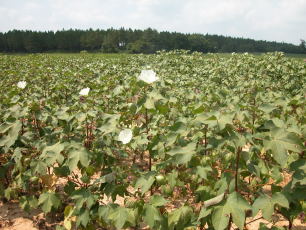 Cotton field along Highway 162 |
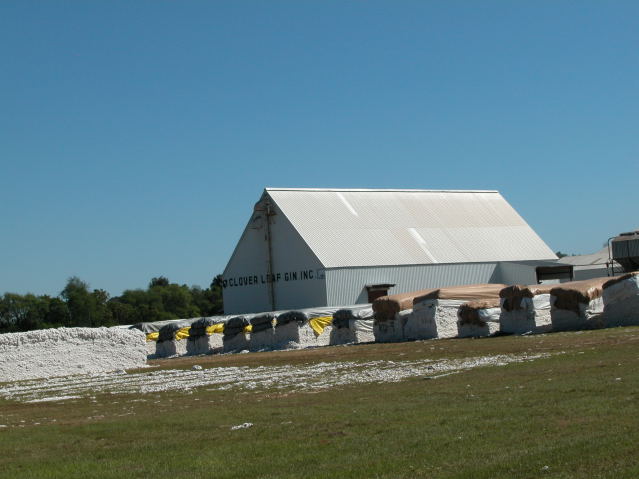 Jackson County cotton gin, 2004 |
Larry Ford takes a scientific businessman's approach to farming, striving to increase his yields and decrease his costs. He irrigates 75 to 80 percent of his land (all the corn and 80 percent of the peanuts). He has changed the way he irrigates and generally puts out less water more frequently and does the majority of irrigating at night to reduce evaporation. He selects the most appropriate soils for each crop, strip tills rather than bottom tills corn and cotton, and carefully rotates his crops to decrease soil-borne disease and nematodes. You can grow peanuts in a closer than three-year rotation, but you've got to spend more money to do it, according to Mr. Ford. He includes bahiagrass in his rotation program, increasing his peanut yield and providing pasture for his cattle. Timing is very important for successful farming with each crop having an ideal time for planting and harvesting.
Listen to Mr. Ford describe his timing for crops : Real Network | Windows Media Player
Click here to read the text of the audio about timing for crops.
Three separate herds of cattle graze on Ford farms: a purebred Brahman herd, a Brahman female and Angus bull herd, and an F1 female (half Angus half Brahman) Angus bull herd.
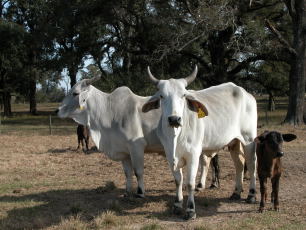 Brahman females with F1 offspring |
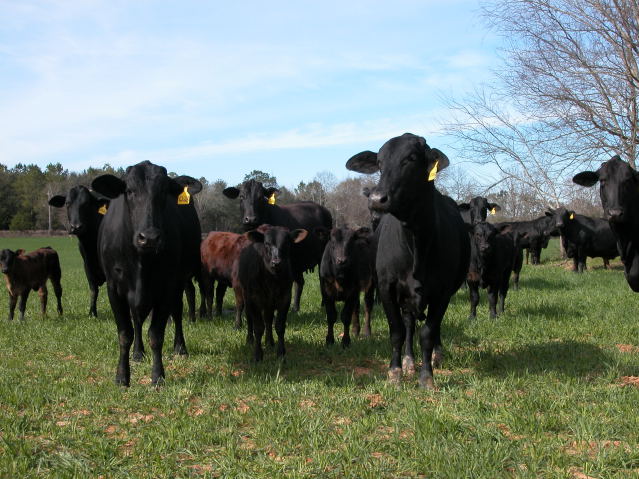 F1 females with 3/4 Angus offspring |
Larry Ford thinks that farming will continue to be a major land use in Jackson County for years to come, but the form it will take will depend on many factors, not the least of which will be decisions made in Washington.
Listen to Mr. Ford predict the future of agriculture for Jackson County: Real Network | Windows Media Player
Click here to read the text of the audio predicting Jackson County's future in agriculture.
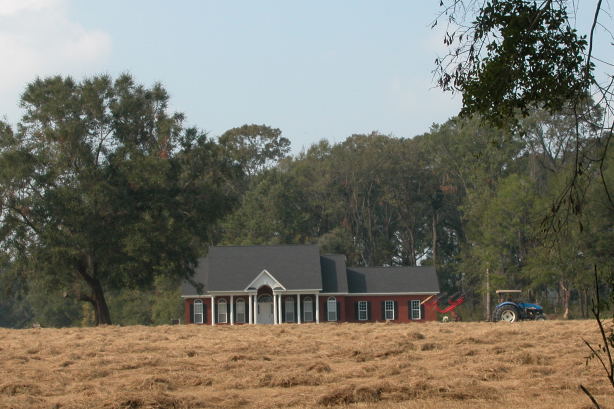 New construction in farm country north of Greenville |
profile by Elizabeth D. Purdum
Note: The content of the website has not been updated since 2005. The site remains online for it's value as legacy content and is unlikely to be updated.